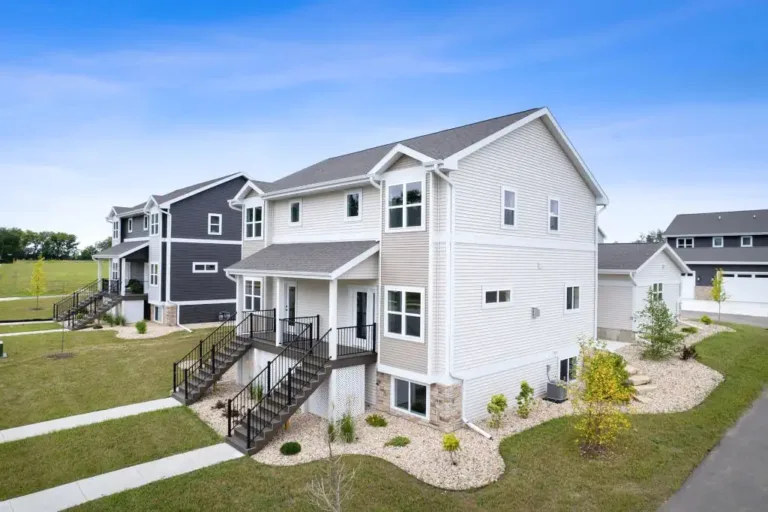If you’re considering buying a condominium, one of the critical factors you’ll encounter is the condo fees and assessments.
These financial obligations play a significant role in the overall cost of owning a condo and can vary widely depending on the property, the location and shared amenities that are offered.
Understanding these fees and how they work can help you make an informed decision and avoid unexpected surprises.
Contents
What Are Condo Fees?
Condo fees, also known as homeowner association (HOA) fees, are regular payments made by condo owners to the condo association. These fees are used to cover the costs associated with maintaining and managing the common areas and amenities of the condominium complex. Common areas may include landscaping, pools, fitness centers, elevators, and hallways, while amenities can range from recreational facilities to security services.
What Do Condo Fees Cover?
Condo fees typically cover:
- Maintenance and Repairs: Regular upkeep of common areas and shared facilities. This includes cleaning, landscaping, and repairs.
- Utilities: Costs for services like water, trash removal, and sometimes electricity for common areas.
- Insurance: Insurance for common areas and the building structure, though it usually doesn’t cover individual units’ contents or personal liability.
- Management Fees: Payment for the property management company or staff that handles the day-to-day operations of the association.
- Reserve Fund Contributions: Funds set aside for major repairs and replacements, such as roof repairs or elevator upgrades.
How Are Condo Fees Determined?
Condo fees are determined by the condo association’s budget, which is created based on the estimated costs of maintaining and managing the property. This budget is typically reviewed and approved annually by the board of directors. The fees are then divided among the condo owners based on their unit’s size, value, or a predetermined formula outlined in the condo association’s governing documents.
How to Assess If Condo Fees Are Fair
To determine if condo fees are reasonable, consider the following:
- Compare with Similar Properties: Check the fees for comparable condos in the area to ensure they are in line with market standards.
- Review the Budget: Examine the condo association’s budget to understand how fees are allocated and if they are being used efficiently.
- Evaluate the Amenities: Consider the quality and extent of amenities and services provided. Higher fees might be justified if they cover extensive or high-quality amenities.
- Assess Reserve Fund Health: A well-funded reserve fund is crucial for covering unexpected large expenses. A poorly funded reserve might lead to special assessments in the future.
What Are Condo Assessments?
Condo assessments, also known as special assessments, are additional charges that condo owners may be required to pay on top of their regular condo fees. These assessments are usually levied to cover unexpected expenses or significant repairs that exceed the budgeted amounts in the reserve fund.
When Are Condo Assessments Imposed?
Special assessments can be imposed in several situations:
- Unexpected Repairs: If a major repair or replacement is needed that was not anticipated in the budget, a special assessment may be necessary. Examples include significant structural damage or major system failures.
- Underfunded Reserve Funds: If the reserve fund is insufficient to cover a planned major expense, a special assessment might be used to fill the gap.
- Emergency Situations: In the event of emergencies like natural disasters or unforeseen damage, special assessments may be used to fund repairs.
How Are Special Assessments Determined?
The amount of a special assessment is determined by the condo association’s board of directors. The board will typically conduct a detailed assessment of the cost of the necessary repairs or improvements and divide this cost among the condo owners. The allocation might be based on the size of each unit, the percentage of ownership, or a flat rate.
How to Handle Special Assessments
If faced with a special assessment, consider the following steps:
- Review the Documentation: Ensure you understand the reason for the assessment, the total cost, and how it was calculated.
- Evaluate the Payment Terms: Determine if the assessment can be paid in installments or if it requires a lump-sum payment.
- Plan Your Budget: Adjust your financial plans to accommodate the additional expense, and consider setting aside emergency funds for such situations.
- Communicate with the Board: If you have concerns or need clarification, communicate with the condo association’s board to get detailed information.
The Role of Condo Associations in Managing Fees and Assessments
Condo associations are responsible for managing the finances of the condominium complex, including setting and collecting fees and assessments. Their role involves:
Budget Planning and Management
The condo association’s board creates and approves the annual budget, which includes the operating budget and reserve fund contributions. The board must ensure that the budget is balanced and that there are sufficient funds to cover regular expenses and future needs.
Regular Maintenance and Repairs
The board oversees the maintenance and repair of common areas, ensuring that the property remains in good condition. They must make decisions about when and how to address maintenance issues, balancing cost with the need for timely repairs.
Communication with Owners
Effective communication is crucial in managing condo fees and assessments. The board should keep condo owners informed about financial matters, including changes in fees, upcoming assessments, and the rationale behind them.
Ensuring Financial Transparency
Transparency in financial matters helps build trust between the board and condo owners. Regular financial reports, open meetings, and clear explanations of financial decisions are essential for maintaining transparency.
Legal Aspects of Condo Fees and Assessments
Condo fees and assessments are governed by the condominium’s governing documents, including the declaration, bylaws, and rules. These documents outline how fees are set, collected, and used, as well as the process for imposing and managing special assessments.
Governing Documents
- Declaration: The declaration provides the foundational rules for the condominium, including how fees are assessed and used.
- Bylaws: The bylaws outline the operational rules of the condo association, including board responsibilities and procedures for fee and assessment management.
- Rules and Regulations: These additional documents may include specifics on how fees and assessments are to be handled.
Legal Protections and Rights
Condo owners have rights and protections under state and local laws, which may include:
- Right to Review Financial Records: Owners typically have the right to review the condo association’s financial records and budgets.
- Right to Fair Assessment Procedures: Special assessments must be imposed according to the procedures outlined in the governing documents and applicable laws.
- Right to Challenge Decisions: Owners may have the right to challenge unfair or improper assessments through legal or administrative processes.
Tips for Potential Condo Buyers
If you’re considering buying a condo, understanding the fees and assessments is crucial. Here are some tips to help you navigate this aspect of condo ownership:
Review the Financial Documents
Before buying, thoroughly review the condo association’s financial documents, including the budget, reserve fund status, and any recent special assessments. This will give you a clear picture of the property’s financial health.
Assess the Association’s Management
Evaluate the effectiveness and transparency of the condo association’s management. A well-managed association is more likely to handle fees and assessments fairly and efficiently.
Consider the Long-Term Costs
Factor in both regular condo fees and potential special assessments when evaluating the overall cost of owning a condo. A property with higher fees may be more costly in the long run, especially if special assessments are frequent.
Consult with Professionals
Work with real estate professionals, such as agents or attorneys, who can help you understand the implications of condo fees and assessments and ensure you’re making an informed decision.
Conclusion
Condo fees and assessments are essential aspects of condominium ownership that require careful consideration. By understanding what these fees cover, how they are determined, and the role of condo associations, you can better manage your finances and avoid potential issues. Always review financial documents, assess the condo association’s management, and seek professional advice to ensure a smooth and informed condo ownership experience.
By taking these steps, you’ll be well-equipped to handle the financial responsibilities of condo living and enjoy the benefits of your new home.











